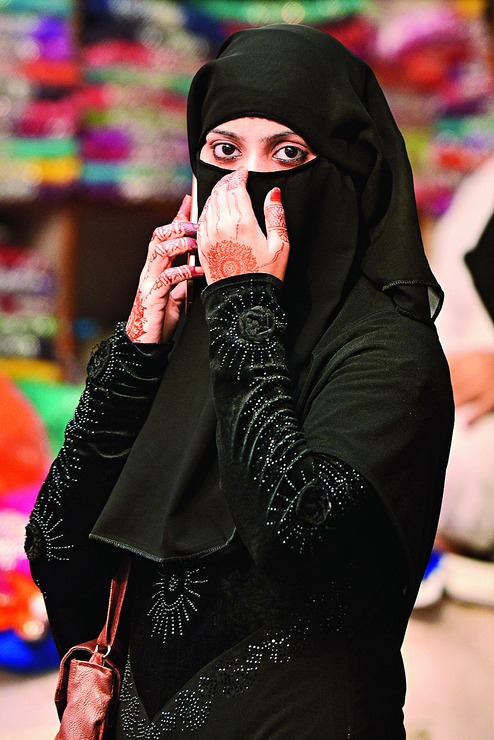
New Delhi, Aug. 22: Muslim leaders and organisations today largely welcomed the Supreme Court verdict against the instant talaq but expressed fear that the Narendra Modi government might use it as a launch pad to bring in a uniform civil code.
They pilloried the Centre's avowal of a pro-Muslim-women stance in the instant talaq debate as "political gimmick and hypocrisy", asking what Modi had done for the women riot victims of 2002 or the widows of the recent cow vigilante lynchings.
"The Prime Minister has no moral right to talk of justice for Muslim women. Where was he when Muslim women were being raped and pregnant women's wombs were being ripped apart during the 2002 Gujarat riots, when he was the chief minister?" asked Kamal Farooqui, member of the All India Muslim Personal Law Board.
He was guarded about the verdict. "The top court has not banned talaq as such; it has only outlawed the instant talaq," he said.
"In our affidavit to the apex court, we too had submitted that Shariat law did not sanction this controversial practice of instant divorce."
Farooqui said the instant talaq accounted for a minuscule proportion of divorces among Muslims.
While criticising those who practice the instant talaq, the law board had told the apex court that it was against the government or the judiciary intervening in personal law.
Navaid Ahmed, president of the All India Majlis-e-Mushawarat, an umbrella body of Muslim organisations, hailed the verdict.
"I welcome the judgment as it has commented only on the instant talaq and not on Muslim personal laws. We fear that this government is trying to push through a common Hindu code in the guise of a uniform civil code," he said.
Abdul Hameed Noumani, general secretary of the All India Muslim Morcha, too welcomed the judgment: "Every sensible Indian Muslim wanted a ban on the instant talaq as it is a sin."
He, however, accused the Modi government of playing politics with the issue.
"Modiji has overnight become a champion of Muslim women but he had never said anything comforting to the widows of Pehlu Khan and Mohammed Akhlaque, who were lynched by gau rakshaks," Noumani said.
"If he had really been so concerned about Muslim women, he would have ensured justice for the rape survivors of Gujarat and Muzaffarnagar."
Ahmed said it would be a Herculean task for the government to implement the verdict on the ground and demanded an awareness campaign against "the evils of the instant talaq".
Masoom Moradabadi, editor of the Urdu daily Jadid Khabar, asked why the government had been so worried about the instant talaq and not the lynching of Muslims.
"It's a shrewd political agenda to raise insignificant issues to divert people's attention from the real issues," he said.
Moradabadi said Modi had never visited the relief camps sheltering Muslim women after the 2002 riots.
"Rather, he greeted them with barbs, describing them as child-producing factories," he said, alluding to Modi's dig of " Hum panch, hamare pachees (We are five, we produce 25)".
Abul Qasim Nomani, vice-chancellor of the Darul Uloom Deoband, the country's oldest seminary, said the government had politicised the debate on the instant talaq "to attack Islam and attack Muslims".
Zafaryab Jilani, member of the personal law board, too suspected a "conspiracy to impose a uniform civil code".
"The government shouldn't misuse the Supreme Court order to interfere in personal laws. We accept the judgment but will examine the issues of its implementation and work to resolve them," he said.
Ahmed dismissed the BJP claim that the government's stand against the instant talaq had won it votes from Muslim women in the Uttar Pradesh Assembly elections. "It's a lie: there was no such inclination among Muslim women," he said.










